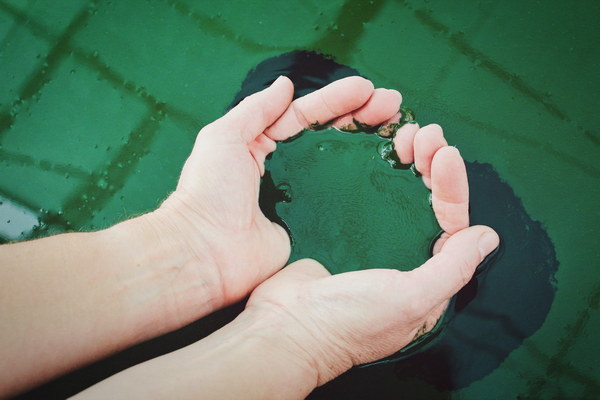The Ultimate Guide to Kidney Care How to Properly Nourish and Protect Your Kidneys
Introduction:

The kidneys are vital organs responsible for filtering waste and excess fluid from the blood, maintaining electrolyte balance, and producing hormones. Unfortunately, kidney problems can arise due to various factors such as poor lifestyle choices, genetics, and medical conditions. To ensure optimal kidney health, it's essential to adopt a well-rounded approach that includes diet, exercise, and stress management. This article provides a comprehensive guide on how to properly nourish and protect your kidneys.
1. Maintain a Balanced Diet:
a. Increase your intake of fruits and vegetables: These are rich in vitamins, minerals, and antioxidants that help reduce inflammation and protect kidney function.
b. Consume lean proteins: Lean proteins such as chicken, turkey, and fish are better choices than red meats, which can be high in saturated fats and increase the risk of kidney disease.
c. Limit sodium and potassium intake: Excess sodium can cause water retention and increase blood pressure, which is harmful to the kidneys. Similarly, excessive potassium can lead to kidney damage. Check food labels and use herbs and spices to flavor your meals instead of salt.
d. Choose healthy fats: Opt for healthy fats such as olive oil, avocados, and nuts, which can help reduce inflammation and improve overall kidney health.
2. Stay Hydrated:
Drinking plenty of water is crucial for kidney health. It helps flush out waste products and toxins from the body, reducing the risk of kidney stones and infections. Aim to drink at least 8 glasses of water per day, or more if you are active or live in a hot climate.
3. Exercise Regularly:
Regular physical activity can improve overall health and reduce the risk of kidney disease. Engage in moderate-intensity exercises such as brisk walking, swimming, or cycling for at least 150 minutes per week.
4. Manage Chronic Conditions:
If you have a chronic condition such as diabetes, hypertension, or obesity, it is crucial to manage these conditions effectively. Work with your healthcare provider to develop a treatment plan that includes medication, lifestyle changes, and regular monitoring of your kidney function.
5. Avoid Harmful Substances:
Limit or avoid the consumption of alcohol, tobacco, and other harmful substances, as they can contribute to kidney damage.
6. Regular Check-Ups:
Schedule regular visits with your healthcare provider to monitor your kidney function and screen for any potential issues. Early detection and intervention can help prevent the progression of kidney disease.
7. Manage Stress:
Chronic stress can have a negative impact on kidney health. Find healthy ways to manage stress, such as practicing mindfulness, yoga, or engaging in hobbies you enjoy.
Conclusion:
Proper kidney care is essential for maintaining overall health and preventing kidney disease. By adopting a balanced diet, staying hydrated, exercising regularly, managing chronic conditions, avoiding harmful substances, scheduling regular check-ups, and managing stress, you can help ensure optimal kidney health. Remember that prevention is key, and taking proactive steps today can lead to a healthier tomorrow.









